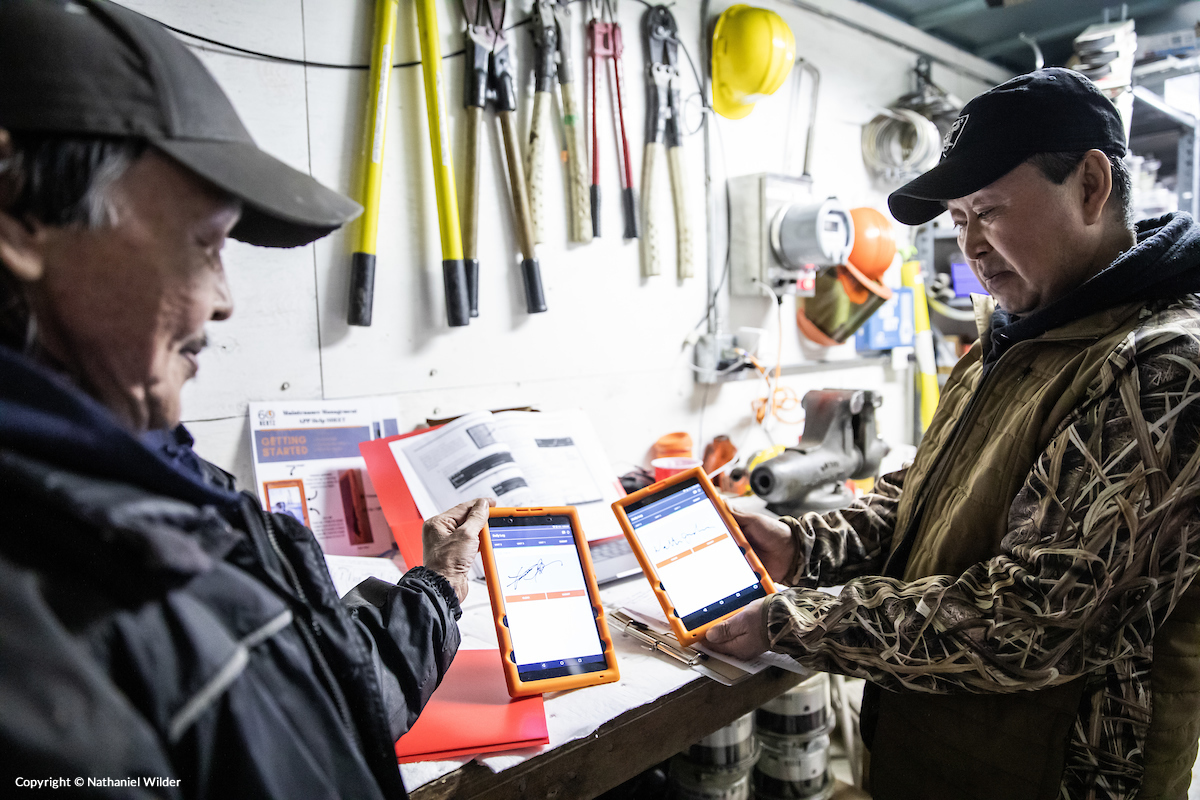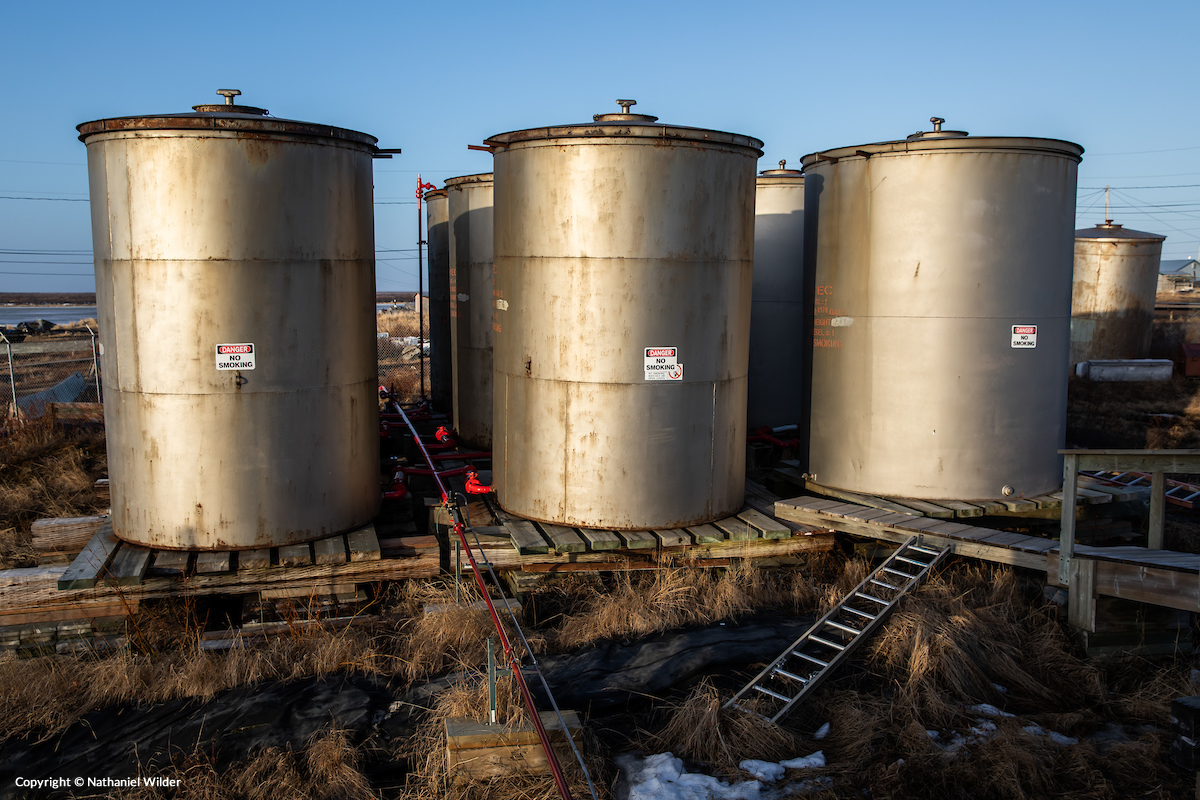60Hertz is an Alaska startup and pioneer in the area of microgrid maintenance. The company has created a cloud-based app that runs on tablets and smart phones. It aims to improve maintenance for microgrids — whether in rural villages in the Arctic, newly electrified places in Colombia, or in urban resiliency grids — by making it easier for local operators to perform their daily tasks. Maintenance is a critical responsibility, and when it fails, the results can be financially devastating for asset owners or microgrid developers.

In many cases, Alaska’s electricity-challenged villages are so isolated that new generators, fuel, or spare parts can’t be delivered for months. Sometimes they can be brought in by airplane, but only at exorbitant cost. Alaska’s subsistence communities survive for an entire year on fish and meat that is gathered during the short hunting season, and then frozen. When power failures occur – and this can be when diesel generators go down because of inadequate maintenance – freezers thaw and meat rots, with economic consequences for these families.
That’s why 60Hertz founder Piper Foster Wilder and cofounder, Tonya James, decided that their product could fill a critical gap. Around the world today, most microgrid operations and maintenance (O&M) records are noted on paper with a pencil. 60Hertz offers a tool to transition to a digital platform. This way, 60Hertz reasons that they can help microgrid operators do their jobs better. The 60Hertz app provides daily task checklists, educational videos, a secure and efficient way to transmit documents, a strong peer-group network and even kudos for a job well done. At the same time, the electric coops that serve these communities can push out tasks into the field, manage inventory remotely and be more closely connected to help if issues arise.

The 60Hertz solution has been in the field for about a year, deployed in 15 communities served by four different Alaska electric cooperatives. Soon it will be rolled out to 10 more communities in the Alaska Village Electric Cooperative, which serves a total of 58 villages. The two say it’s working well. They have also had to learn some important lessons the hard way.
“It sounds simple to switch from paper to digital maintenance,” says Wilder, but it is an enormous change-management challenge. “Our customers understand their workflow with paper. Now they need to understand how something that was linear before can be made dynamic. That’s where some of our most interesting learnings have come.”
The two 60Hertz founders have important complimentary skills, including Wilder’s background in solar development and electronic controls, and James’s experience in the military where she was an MP, and worked in emergency management and logistics.
“Humility is a core attribute of our approach,” says Wilder. 60Hertz has learned how to train and engage operators who have very little technical education or training, and some who haven’t even had the chance to gain proficiency with a smart phone. James, who works to onboard new operators, says it’s hugely rewarding to see how fast they develop technical literacy. “There’s a sense of vulnerability when men look at me and say “I don’t even use a cell phone,” she says, “but I tell them, I’m not willing to get on that plane and leave here till you’re totally comfortable with the hardware and the app.” Others are insecure about their skills with writing and grammar, but 60Hertz has virtually eliminated that issue by moving operations to a digital platform.
Alaska’s microgrid innovation is a model for the developing world
“Alaska is a proxy for developing countries,” says Wilder. “Alaska has an amazing braintrust of microgrid experts. People have been solving these problems for 30 years. The solutions we are developing here will go on to flourish in many different types of microgrids around the world.” Wilder took the unusual step of hiring a cultural anthropologist to 60Hertz design the app. Human-centered design was the one of the most important considerations, and the company paid special attention to local language, communication styles and the social context in which microgrid operators live. Wilder believes that approach will bear fruit as the company expands internationally.
Recently 60Hertz was invited through USAID and NREL to support rural electrification in Colombia, where six demonstration mini grids are planned. The 60Hertz app will be translated into Spanish for that project and Wilder says, “As we bring on Colombians, we have to be mindful to make sure the new application reflects the people we’re serving. Imagery, language, and word choice.”
Wilder says “Right now, so much is focused on the planning, the engineering, and the financing of microgrids. But what’s going to happen when the project is built? What about the people who will be managing it?” She says “We designed 60Hertz to give users a sense of job ownership and dignity. That compels commitment and promotes longevity. Realistically, the person who who ‘owns’ that microgrid emotionally is the one who is going to look after it well.”
Don’t miss the opportunity to learn about Arctic microgrids at the HOMER International Microgrid Conference, October 6-9, Cambridge, MA. An afternoon session on Monday October 7th will explore microgrid projects in northern Canada and Alaska.
Case Studies: Lessons from 0ver 20 Years of Microgrid Development in the Arctic.
Gwen Holdmann, Alaska Center for Energy and Power, Microgrid Innovation in Alaska
Alexandre Nassif, ATCO Electric, Planning and Design of a Northern Isolated Microgrid (Fort Chipewyan)
Michele Nesbit, BoxPower, Reducing Cost by Containerizing Mini Grids and Microgrids
Piper Foster-Wilder, 60Hertz, Learning from Frank Brown, Jr. — Microgrid Maintenance from an Industry Veteran
Join us at the Virtual 8th Annual HOMER International Microgrid Conference, October 12-16, 2020.

Please share news of the HOMER International Microgrid Conference on social media: #HIMC2019
